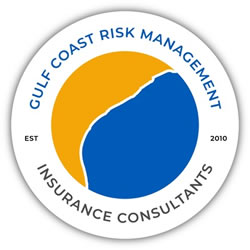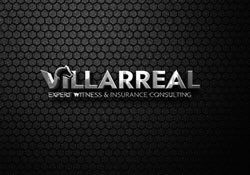
Edward J. Priz, CPCU, APA, has worked full-time in the Insurance Industry since 1976. In 1982, he also began consulting on commercial property and casualty insurance, and Workers Compensation insurance premium charges, and in 1987 established his own consulting firm to specialize in those fields, as Advanced Insurance Management.
Mr. Priz holds the professional designation Chartered Property Casualty Underwriter (CPCU) from the American Institute of Property and Liability Underwriters, as well as the designation Associate in Premium Auditing, from the Insurance Institute of America.
Litigation Support - Mr. Priz has been retained by policyholders, insurance agents and brokers, insurance companies, and a premium audit firm as an expert witness in his field, both as a consulting expert and as a testifying expert. He serves as an expert witness to counsel for Plaintiff and Defense and has testified in federal and state courts and arbitrations in California, Colorado, Connecticut, Delaware, Illinois, Florida, Louisiana, Mississippi, Nebraska, New Jersey, New York, Ohio, Pennsylvania, Tennessee, Texas, and Virginia. He is a member of the Forensic Expert Witness Association and currently serves as Vice-President of the Chicago chapter of that organization. He is also a member of the Society of Chartered Property Casualty Underwriters, and the National Society of Insurance Premium Auditors.
Mr. Priz has also consulted on the drafting of legislation pertaining to Workers Compensation insurance in Illinois and has testified on insurance regulation before the Illinois legislature. He is the author of three books on the subject of Workers' Compensation insurance.
Edward Priz Expert Witness Services
Areas of Expertise:
- Workers Compensation
- Insurance Premiums
- Audits
- Classifications
- Experience Modification Factors
- Retrospective Rating
- Large Deductible Policies
- Payroll Audits
- NCCI Manual Rules
- Insurance Agent / Broker Standards of Care
- Commercial Property & Casualty Insurance Coverage
| - NCCI classification Rules
- Experience Rating
- NCCI Rules and Procedures
- Retrospective Rating
- Large Deductible Policies
- Workers Compensation Appeals
- Agent Errors and Omissions
- Insurance Auditor Duties and Errors
- NCCI Inspections
- Independent WC Rating Bureau Rules
|
View Edward Priz's Consulting Profile.
By: Edward Priz, CPCU, APA
One question being asked is whether COVID-19 infections could be the basis for Workers Compensation claims by workers who feel they likely contracted the virus through work. At the moment, the best answer appears to be that’s unlikely for many workers, possible for some, and subject to change depending on future actions by state legislatures.
By: Edward Priz, CPCU, APA
Employers generally realize that the initial premium they pay for Workers Compensation insurance isn't the final premium for that coverage-Workers Comp is normally subject to an audit after the policy ends, to adjust premium charges based on actual payroll amounts. When the policy starts, after all, payroll amounts can only be estimated for the coming year. So it's routine for employers of any size to undergo a Workers Compensation premium audit, and to receive an audit statement that often seeks some additional premium.
By: Edward Priz, CPCU, APA
A growing trend for many businesses has been for their customers and prospects to use their experience modification factor as a safety benchmark, requiring a modifier of 1.00 or 1.05 for those bidding on projects. A higher modifier can disqualify a firm from bidding on many projects, particularly governmental projects.
By: Edward Priz, CPCU, APA
Recently, a former Director of the Illinois Department of Insurance wrote an Op-Ed piece, decrying recently proposed legislation that would require insurers to file changes in Workers Compensation insurance rates with regulators before using those rates with insurers. The proposed legislation would also allow the Department of Insurance to disapprove rates if it was determined they were excessive.
Edward J. Priz, et al
An easy to understand guide, written for a general business audience, that explains in detail how Workers Compensation insurance is priced and audited. The Field Guide explains the classification system used by insurance companies, the audit process, experience modification factors, and how and why overcharges occur. Most importantly, it explains in plain language how employers can protect themselves from the common mistakes the insurance industry makes that cause Workers Comp premiums to be higher than they properly should be.
Edward J. Priz, Scott Priz
Everything business owners and managers need to know to understand Workers Compensation insurance for their company, including how to reduce premium costs.
Edward J. Priz, et al
Many of the rules which determine premiums are understood only by employees in the audit and underwriting departments of insurance companies. The result is a built-in bias in the system which favors higher premiums.
CompControl was written by an industry insider -- a consultant who has saved clients more than $4 million in overcharges. His book reveals how the system really works and how you can make it work for you.
















 Mr. Beringer is the Principal of Beringer & Associates (B&A) and Liability Program Management (LPM). He is an approved consultant by the A.M. Best organization, since 2006, for claims, liability, and insurance program management, including matters involving construction, OCIP, TPA, JPA, Captives, Memorandum of Coverage, and insurance coverage analysis. The Cayman Island Monetary Authority approved Mr. Beringer as a licensed captive owner in 2002 for Segregated Portfolio Company Creative Solutions, SPC.
Mr. Beringer is the Principal of Beringer & Associates (B&A) and Liability Program Management (LPM). He is an approved consultant by the A.M. Best organization, since 2006, for claims, liability, and insurance program management, including matters involving construction, OCIP, TPA, JPA, Captives, Memorandum of Coverage, and insurance coverage analysis. The Cayman Island Monetary Authority approved Mr. Beringer as a licensed captive owner in 2002 for Segregated Portfolio Company Creative Solutions, SPC. Scott S. Margraves, CIC, has over 32 years of Commercial Property and Casualty Insurance experience. He is the Principal Consultant and Founder of Gulf Coast Risk Management, LLC (GCRM). GCRM provides research, analysis and advice to commerce, industry, government and individuals.
Scott S. Margraves, CIC, has over 32 years of Commercial Property and Casualty Insurance experience. He is the Principal Consultant and Founder of Gulf Coast Risk Management, LLC (GCRM). GCRM provides research, analysis and advice to commerce, industry, government and individuals.  Hayden Burrus, FCAS, MAAA, is an accomplished Casualty Actuary with over 30 years of leadership experience in the Insurance Industry. Former President of Casualty Actuaries of the Southeast, Chief Actuary of publicly traded workers' compensation insurance company, actuarial experience at multiple insurance rating organizations (National Council on Compensation Insurance (NCCI) and Insurance Services Office (ISO)), Mr. Burrus is experienced with all sides of the insurance industry.
Hayden Burrus, FCAS, MAAA, is an accomplished Casualty Actuary with over 30 years of leadership experience in the Insurance Industry. Former President of Casualty Actuaries of the Southeast, Chief Actuary of publicly traded workers' compensation insurance company, actuarial experience at multiple insurance rating organizations (National Council on Compensation Insurance (NCCI) and Insurance Services Office (ISO)), Mr. Burrus is experienced with all sides of the insurance industry.  Lezlee Liljenberg, CIC, CRIS, MLIS, PA, MA, entered the Insurance business in 2004 as she started her first agency from ground zero, growing the business to over $6 million in revenue in less than 12 years.
Lezlee Liljenberg, CIC, CRIS, MLIS, PA, MA, entered the Insurance business in 2004 as she started her first agency from ground zero, growing the business to over $6 million in revenue in less than 12 years. Michelle Villarreal, AIC, AINS, is a highly accomplished and respected professional with proven success and experience in Insurance and Reinsurance company auditing, operational development, and claim management.
Michelle Villarreal, AIC, AINS, is a highly accomplished and respected professional with proven success and experience in Insurance and Reinsurance company auditing, operational development, and claim management.

